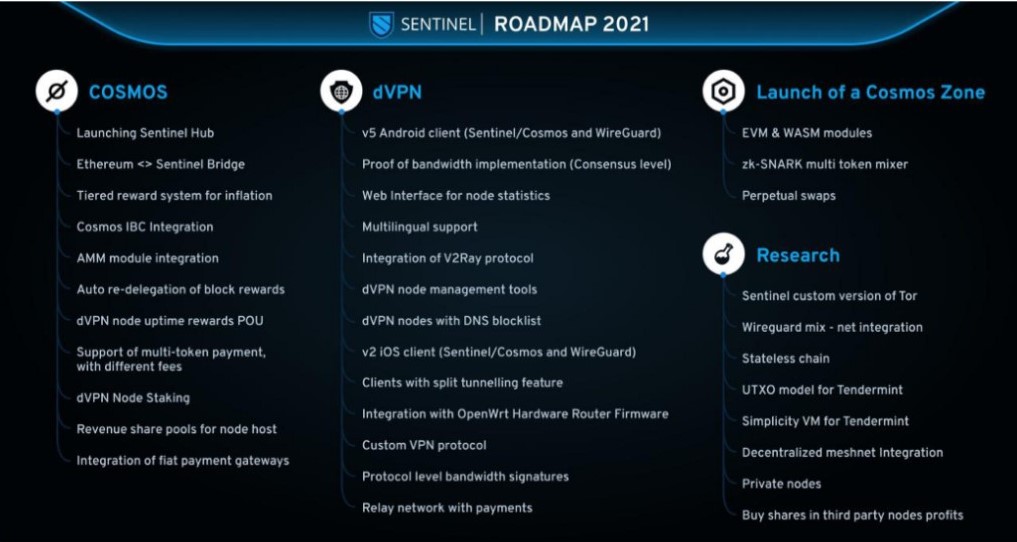
/1 A completely decentralised, private, secure and censorship resistant web experience is not a pipe dream. Two $COSMOS projects in combination can make this possible for all. If you haven’t guessed already, I’m talking about @Sentinel_co $DVPN and @akashnet_ $AKT. 

/2 Why do people use a VPN? Primarily to keep their data private by concealing their banking information, browsing history, account passwords etc.
/3 However, leading centralised VPN companies have been known to store and collect user data, whilst at the same time being exposed to data breach vulnerabilities. This means your data is not really private or secure despite using centralised VPNs.
/4 Decentralised VPNs will help solve this issue and allow people to keep their data private and secure. $DVPN is one such project which is at the forefront of this end goal.
/5 The team behind $DVPN not only aims to maintain its primary front facing application (Sentinel dVPN), they intend to develop a framework on which an entire network of independently operated decentralized VPNs can exist and be operated by anyone. 

/6 The Sentinel ecosystem will be based on the integration of Sentinel’s community-based node hosts. Sentinel (like Akash in the cloud computing space), will make provision for owners of VPN applications to create service contracts with node hosts in the Sentinel ecosystem.
/7 This removes the burden from the owners of these VPN apps of having to manage their own servers. Now this is where Akash can super charge this entire process by enabling the hosting of these DVPN nodes on the decentralised Akash network as opposed to a centralised one.
/8 If a DVPN node is hosted on Akash it will also inherit the benefit of becoming censorship resistant. A DVPN node hosted on Akash is your perfect web 3.0 coupling. This would indeed be a giant leap in escaping the clutches of centralised control.
/9 Both holders of $DVPN and $AKT will not only benefit from high inflationary rewards (APY 60%+ and 40%+ respectively), but will also earn a share of the total network spend (take income) in the near future which will be significant given that...
/10 ...the cloud computing market is expected to reach in excess of 1 trillion dollars in 2030 and the Global VPN industry market cap is expected to reach 75 billion dollars in 2030.
/11 Both these projects are therefore primed for great success and will in all likelihood handsomely reward its investors and token holders in the not-too-distant future.
/12 However, what should have you most excited is how Sentinel $DVPN and Akash $AKT have the potential to work hand in glove to make web 3.0 decentralised, private, secure and censorship resistant.
@nodes_smart @AdrianStarr108
@nodes_smart @AdrianStarr108
• • •
Missing some Tweet in this thread? You can try to
force a refresh





